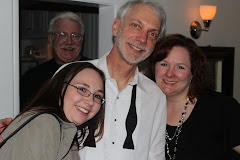"The hopes, disappointments, triumphs and failures of our civilization can readily be seen in the gristle of a T-bone steak."—Hank "Bull Moose" Carter, Enid, Oklahoma, May, 1949
The author of this column has recently completed a project exhaustively researching and chronicling the entire history of human meat eating on our planet. As you might imagine, a project of this magnitude was not easy, and required almost several minutes in the library. Nevertheless, the effort was well worth it, and I am pleased to present here, for the first time, an exhaustive discourse on this important topic—The History of Meat!
• Distant Past— First, humans are gatherers. Then humans learn to sow. Thus, the early human beings gather and sow. As a consequence, many of their clothes are pleated.
• Pretty Darned Distant Past— Fred Caplinski becomes the first human being ever to eat animal flesh (and also the first person to barbecue) when he cooks the remains of a dead squirrel over the fire in front of the family cave in central Africa. When Mrs. C and their two daughters come home from a shopping trip to the mall Fred proudly declares: "This is 'meat.' It will be very useful in the coming ice age!"
"That's gross daddy!" says Fred's younger daughter Megan.
"Gag me with a spoon!" says Fred's older daughter Ashley.
"We have no spoons; we still eat with our hands," observes Fred's wife.
• Late Pleistocene Age— All meat-eaters of this period are Neanderthals.
• 10th Century B.C.— King Solomon meats out justice.
• Spring, 21 A.D.— A rescue party reaches a brigade of the Roman Army which has been cut off all winter in a remote mountain pass with dwindling supplies. The men are promised fresh meat and a change of underwear. They rejoice until they learn they must change with each other.
• 1546— English king Henry VIII poses for reporters with a glass of mead in one hand and a giant drumstick in the other. Later in life he would be forced to admit his mistake. Dying of syphilis, his last words are: "Yeah, other than that drumstick I always lived a pretty clean life."
About this same time under the developing common law in England "meats and bounds" becomes the accepted method of describing real property.
• 1849— German immigrant butcher Oscar Meyer gets an idea for a new product in a most unusual way. Seeing his pet dachshund char-broiled by lightning in a field behind his house, Meyer exclaims, "Now, that's a hot dog!"
• 1904— The Saint Louis World's Fair opens, with its theme song "Meat Me In Saint Louis."
• 1963— Dr. Scholl sues the McDonald's hamburger chain, claiming he first used the term "Golden Arches" in conjunction with his orthopedic merchandise. In ruling on the case, the court notes a remarkable similarity between fast-food burgers and "shoe-lining products."
• 1973— In an effort to combat rampant inflation, the President of the United States issues an Executive Order freezing retail meat prices. The next day newspaper headlines throughout the country proclaim: "Nixon Holds Rising Meat."
• 2096
— Jerry Caplinski (Fred's cousin, 43,257 times removed) becomes the last human being ever to eat meat. At the time meat has already been banned by all countries for nearly 14 years on ecological and ethical grounds. But Jerry has kept a can of Spam in the back of the cupboard in his Brooklyn apartment for all that time. He opens it, and with great expectation takes a bite. Just then Mrs. C and their two daughters come home from a shopping trip to the mall, and Jerry must quickly dispose of the evidence. Although her husband refuses to tell her what he was doing, Mrs. Caplinski swears she hears him say under his breath: "Jeez, it's even worse than I remembered. You'd think after a couple million years they could do better than this!"